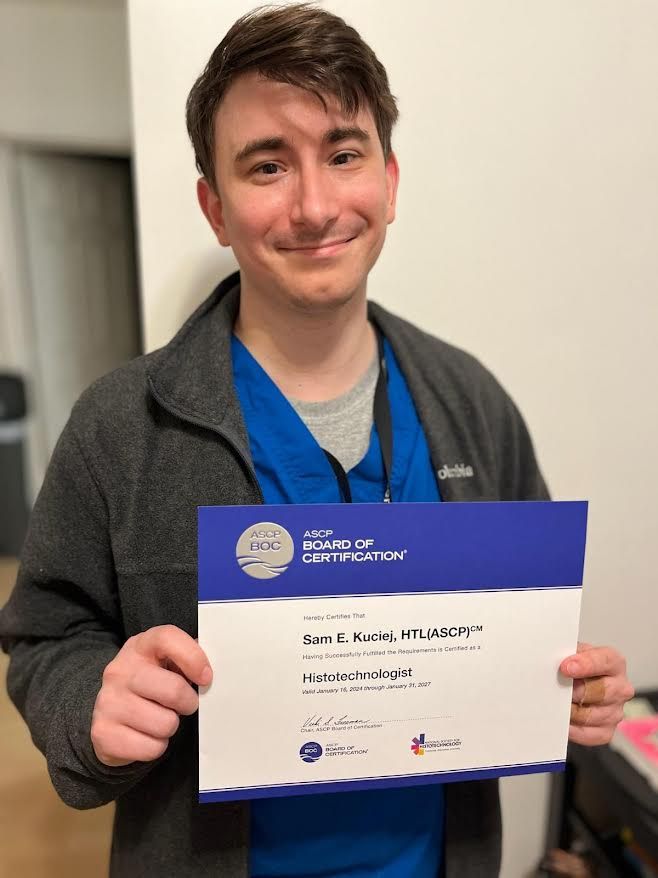Histotechnologist (HTL(ASCP)), In the rapidly evolving field of healthcare and medical research, the role of a Histotechnologist (HTL(ASCP)) has become increasingly vital. These specialized professionals play a crucial role in preparing tissue samples for microscopic examination, which is essential for accurate diagnosis and research in pathology laboratories.
Who is a Histotechnologist (HTL(ASCP))?
A Histotechnologist, often certified as HTL(ASCP) by the American Society for Clinical Pathology (ASCP), is a laboratory professional trained to process human tissue specimens for microscopic evaluation. The HTL(ASCP) credential represents a high standard of expertise, indicating that the individual has met rigorous educational, practical, and examination requirements set by ASCP.
Histotechnologists work closely with pathologists to prepare slides that help identify diseases such as cancer, infections, and autoimmune disorders. Their meticulous work ensures that tissue samples are accurately processed, stained, and preserved for diagnosis.
Key Responsibilities
The responsibilities of a Histotechnologist (HTL(ASCP)) typically include:
-
Tissue Processing: Preparing tissue samples by embedding them in paraffin wax to maintain structural integrity.
-
Sectioning: Using a microtome to cut thin sections of tissue for slide preparation.
-
Staining: Applying various stains to highlight cellular structures and abnormalities for microscopic analysis.
-
Quality Control: Ensuring that all procedures meet laboratory standards and regulations.
-
Collaboration: Working with pathologists and other laboratory staff to provide accurate and timely results.
Required Skills and Education
Becoming a Histotechnologist (HTL(ASCP)) generally requires:
-
A bachelor’s degree in biology, chemistry, or a related field.
-
Completion of an ASCP-approved histotechnology program.
-
Passing the HTL(ASCP) certification exam, which validates knowledge and technical proficiency.
In addition to formal education, essential skills include attention to detail, manual dexterity, analytical thinking, and familiarity with laboratory safety protocols.
Career Opportunities
Certified HTL(ASCP) professionals have diverse career options, including:
-
Hospitals and clinical laboratories
-
Research institutions
-
Biotechnology and pharmaceutical companies
-
Academic teaching positions
With the rising demand for precise diagnostic services, the role of a histotechnologist is expected to grow, offering competitive salaries and job stability.
Conclusion
A Histotechnologist (HTL(ASCP)) is a critical player in modern healthcare, bridging the gap between tissue analysis and accurate diagnosis. For those passionate about laboratory science and contributing to patient care, pursuing HTL(ASCP) certification is a rewarding path. With the combination of technical expertise and professional certification, histotechnologists continue to make a meaningful impact in pathology and medical research.
You Might Also Like These:

